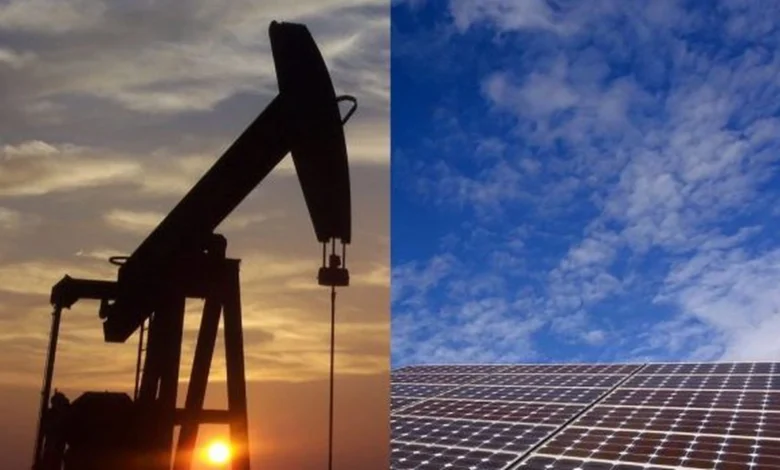Solar Energy vs. Fossil Fuels: A Detailed Comparison

As the world battles climate change, energy security, and rising costs, the debate between solar energy vs. fossil fuels intensifies. While fossil fuels like coal, oil, and natural gas have powered economies for over a century, their environmental cost is alarming. In contrast, solar energy offers a cleaner, renewable, and increasingly affordable alternative.
This detailed comparison dives into both energy sources across key factors such as cost, environmental impact, availability, infrastructure, scalability, and long-term viability. Whether you’re a homeowner, business owner, policymaker, or student — this guide provides valuable insights into the future of Solar energy or solceller.
1. What Are Fossil Fuels and Solar Energy?
Fossil Fuels: Definition and Types
Fossil fuels are non-renewable energy sources formed over millions of years from decayed organic matter buried under layers of earth. The main types include:
- Coal – used primarily in electricity generation.
- Oil – refined into gasoline, diesel, and other products.
- Natural Gas – used for heating, electricity, and industrial purposes.
Fossil fuels are combustible and release energy when burned but also emit greenhouse gases (GHGs).
Solar Energy: Definition and Function
Solar energy is the power harnessed from the sun’s rays through technologies like:
- Photovoltaic (PV) panels – convert sunlight directly into electricity.
- Solar thermal systems – use the sun’s heat for water heating and space heating.
Solar energy is renewable, abundant, and non-polluting, making it a strong candidate for sustainable development.
2. Availability and Accessibility
Fossil Fuels: Finite and Region-Based
Fossil fuels are found in specific geological regions. Countries like Saudi Arabia, Russia, and the U.S. have large reserves, giving them geopolitical leverage. However:
- Extraction is costly and risky
- Reserves are depleting
- Transport and storage require complex logistics
Solar Energy: Abundant and Global
The sun shines everywhere — making solar power universally available. Although the intensity varies by region, almost every location on Earth receives sufficient sunlight to generate electricity:
- Solar is especially effective in sunbelt regions like Africa, the Middle East, India, and Australia.
- Off-grid solar solutions can power remote villages, eliminating dependence on fuel imports.
Winner: Solar Energy (due to global accessibility and inexhaustibility) but it should be installed with professionals like Solee for better performance.
3. Environmental Impact
Fossil Fuels: High Pollution and Emissions
Burning fossil fuels results in:
- CO₂ and methane emissions (major contributors to global warming)
- Air pollution (particulate matter, nitrogen oxides, sulfur dioxide)
- Oil spills, acid rain, and land degradation
Fossil fuel use is a leading cause of climate change, making it unsustainable in the long term.
Solar Energy: Clean and Green
Solar energy is:
- Emission-free during operation
- Requires minimal water compared to fossil fuel plants
- No air or soil pollution
However, the manufacturing of solar panels involves some environmental impact (e.g., use of rare minerals), but this is significantly lower compared to fossil fuels.
Winner: Solar Energy (for environmental sustainability)
4. Cost Comparison: Solar Energy vs. Fossil Fuels
Fossil Fuels: Historically Cheaper but Increasingly Costly
Fossil fuel infrastructure is already developed, but:
- Fuel prices are volatile
- Operational costs are high
- Subsidies mask real cost
- Carbon taxes and emission penalties are rising
Solar Energy: Declining Costs and Long-Term Savings
Over the past decade, the cost of solar panels has dropped over 80%, making it more affordable than ever:
- Low maintenance costs
- Free fuel (sunlight)
- Incentives and tax credits (in many countries)
Levelized Cost of Energy (LCOE) now favors solar over coal and gas in many regions.
Winner: Solar Energy (especially long-term)
5. Energy Efficiency and Reliability
Fossil Fuels: Reliable but Inefficient
Fossil fuel plants can produce electricity 24/7, making them highly reliable. However, they:
- Waste energy as heat
- Have ~30-40% efficiency
- Cause grid instability during fuel shortages or geopolitical conflicts
Solar Energy: Efficient with Storage Options
Modern PV systems are now:
- 20–25% efficient (and improving)
- Work during the day only, but can store energy using battery systems like Tesla Powerwall or community solar banks
- Paired with wind or hydro for hybrid systems
Winner: Draw (Fossil fuels are more consistent, but solar is catching up with storage)
6. Infrastructure and Deployment Speed
Fossil Fuels: Established But Slow to Build
Fossil fuel power plants require:
- Large capital investment
- Years to build and regulate
- Extensive transmission and pipeline networks
Solar Energy: Modular and Fast to Deploy
Solar systems are:
- Scalable from small rooftops to utility-scale farms
- Quick to install (days or weeks)
- Less dependent on grid infrastructure
Even rural areas can adopt solar microgrids to electrify communities.
Winner: Solar Energy (for flexibility and deployment speed)
7. Job Creation and Economic Impact
Fossil Fuels: Fewer Jobs, Higher Automation
While the fossil fuel industry contributes to GDP in many countries, it’s increasingly automated. It also:
- Poses health risks to workers (e.g., mining accidents)
- Faces job losses due to plant closures
Solar Energy: High Job Creation Rate
According to the International Renewable Energy Agency (IRENA):
- Solar energy created 4.3 million jobs globally by 2023
- It employs more people per megawatt than fossil fuels
- Jobs are spread across manufacturing, installation, R&D, and maintenance
Winner: Solar Energy (for job creation and safer working conditions)
Read Also: How Custom Printing Is Powering India’s Next Apparel Boom: Profits, Tech & Street Style Trends
8. Energy Independence and Security
Fossil Fuels: Risk of Import Dependency
Many nations rely on oil and gas imports, making them vulnerable to:
- Price hikes
- Supply chain disruptions
- Political instability
Solar Energy: Boosts Local Energy Security
With solar energy:
- Countries generate their own power
- Reduces foreign energy dependence
- Enhances national security and resilience
Winner: Solar Energy
9. Future Potential and Global Trends
Fossil Fuels: Declining Trend
- Global fossil fuel investments are slowing.
- Climate policies are forcing transition to clean energy.
- Fossil fuels are being phased out in favor of renewables.
Solar Energy: Bright and Expanding Future
- Solar is the fastest-growing energy source globally.
- Innovations like perovskite solar cells, floating solar farms, and solar-powered EV chargers are expanding its utility.
- Governments and corporations are investing heavily in solar as part of net-zero goals.
Winner: Solar Energy
Conclusion: Solar Energy Is the Future of Power
When comparing solar energy vs. fossil fuels, the advantages of solar power are clear:
- It’s cleaner, cheaper over time, and more sustainable.
- Solar energy boosts energy independence, supports job growth, and contributes to a healthier planet.
While fossil fuels still dominate global energy consumption today, their role is rapidly diminishing. The transition to solar and other renewables isn’t just an environmental necessity—it’s an economic and technological inevitability.
FAQs
Q1: Is solar energy really cheaper than fossil fuels?
Yes, the cost of solar energy has decreased significantly and is now cheaper than coal and gas in many regions.
Q2: Can solar energy completely replace fossil fuels?
While solar alone may not replace all fossil fuels, it can meet a large portion of energy needs when combined with other renewables and storage solutions.
Q3: Are fossil fuels going to run out?
Yes, fossil fuels are finite resources and will eventually be depleted, making renewable alternatives like solar critical for future energy security.
Q4: What are the biggest challenges of solar energy?
Intermittency (night/cloudy days), storage costs, and initial installation expenses are challenges, but ongoing innovations are reducing these limitations.
Q5: Is it worth investing in solar for homes or businesses?
Absolutely. With falling costs, government incentives, and rising electricity prices, solar energy is a smart long-term investment.




